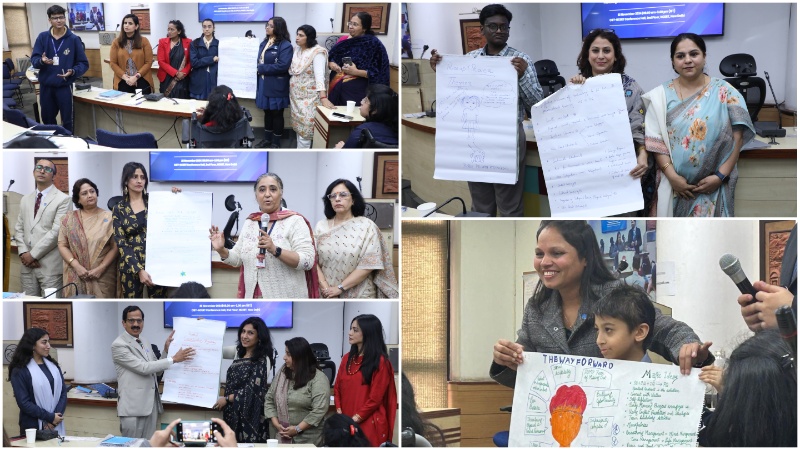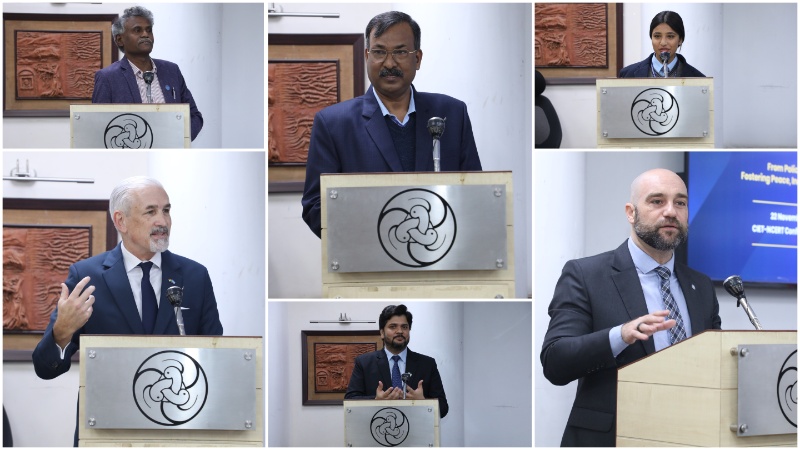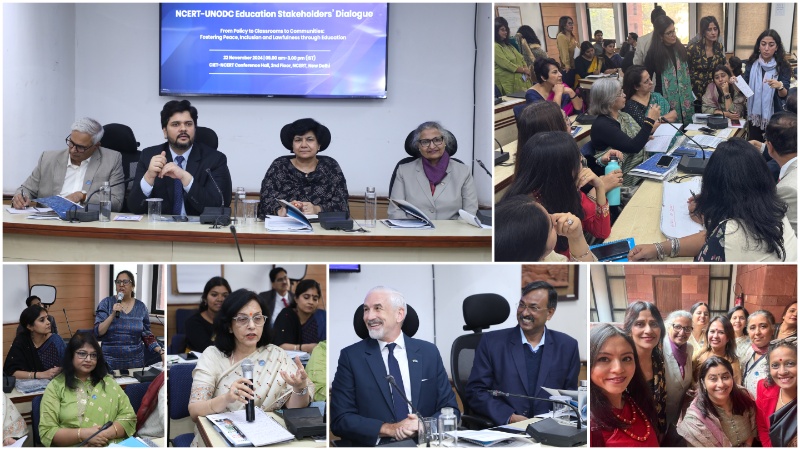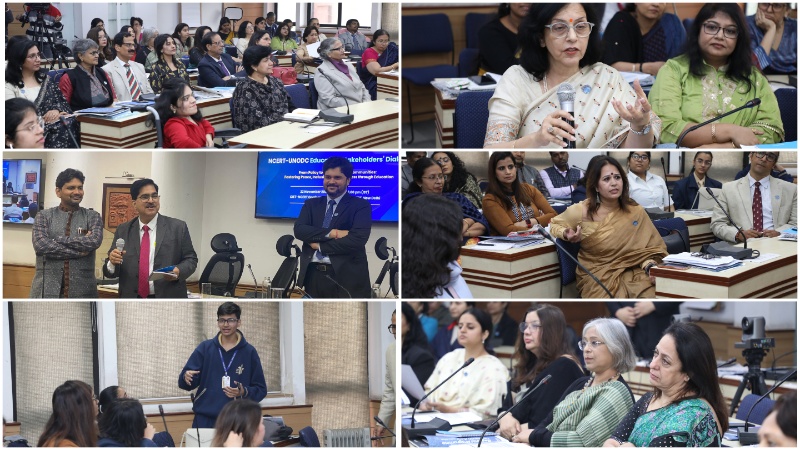India: NCERT-UNODC RiseUp4Peace consultation unites policymakers, educators and young people to champion education for peace, lawfulness and inclusion

New Delhi, India/22 November 2024: Today, young people face critical challenges—mental health, cyber risks, drug use, violence, among others. Responding to this right from the classrooms is “a need of the hour,” educators say. India’s National Education Policy (NEP) 2020 and the National Curriculum Framework (NCF) 2023 both recognize the need to nurture responsible citizens who can contribute to peace and harmony in an increasingly complex world. But this ambition goes beyond the traditional scope of education—it requires reimagining educational interventions in classrooms, schools, and communities.
In several bustling classrooms across India, there is a powerful movement quietly taking shape—one that champions peace, lawfulness and inclusion through education. Bridging theory with practice, UNODC’s RiseUp4Peace educational initiative is focused on engaging and empowering young people to resist negative influences, emerging vulnerabilities and risky behaviours.
Launched this year, the cross-cutting collaborative initiative has engaged over 30,000+ stakeholders across 14 states and UTs through participatory capacity building of educators, co-creation of school-led initiatives, and activity-based learning of students. The program has spurred innovative actions blending arts, tech, and sports to empower students, with support of a diverse set of partners: public, private and rural schools, NCERT, DERT Meghalaya, Raipur Police and educator and youth groups.

Emphasising the initiative’s relevance and impact, over 70 policymakers, educators and young champions ideated and charted a roadmap for fostering peace, inclusion, and lawfulness in education at a RiseUp4Peace policy consultation convened by India’s apex curriculum body, the National Council of Educational Research and Training (NCERT) and UNODC.
Working in mixed groups, policymakers, educators and students from diverse backgrounds exchanged practical insights on curriculum integration, good practices and new ideas, as well as the way forward. Educators emphasized the importance of a holistic approach to education, voicing support for RiseUp4Peace.
“The dream of Viksit Bharat, as articulated by the Honourable Prime Minister of India, hinges on ensuring that children in school receive not only quality education but also are sensitized to become responsible model citizens of tomorrow. The UN system in India stands fully committed to support this mission,” said Mr. Shombi Sharp, United Nations Resident Coordinator in India.

With RiseUp4Peace, schools are leading change by integrating street plays, music, art, community engagement and AI-tools in school-wide projects on anti-bullying, cyber safety, drug use prevention and gender equality. Equipped with tools, monthly activity plans, cross-learning and intensive capacity boosting dialogues with Mr. Samarth Pathak from UNODC and Dr. Satya Bhushan from NCERT, a growing number of educators are integrating important themes pertaining to SDG16 in classroom programs. Student-led conversations and advocacy efforts through vlogs, posters, social work and peer-centered activities are responding to emerging realities from classrooms. The result? Young learners resonating with a critical challenge, identifying solutions and responses, sharpening their own unique skills and developing a sense of empathy, leadership and social responsibility.
“NEP 2020 envisions education as a bridge to a more just and peaceful society. Such collaborations transform vision into action,” said Dr. Amarendra Prasad Behera, Joint Director, NCERT. UNODC Regional Representative Marco Teixeira underscored the importance of such efforts to address youth vulnerabilities pertaining to drugs, mental health challenges and risky behaviors. UNODC Deputy Representative for South Asia, Dr. Suruchi Pant highlighted that “a whole-of-society approach is essential to empower students and ensure they have the support needed to thrive.”

Participants called for more capacity building efforts in this direction and development of localised values-driven modules to transform education. Sharing a range of good practices and ideas, educators like Ms. Paramjeet Kaur Dhillon, Principal of KNPS Phagwara, reflected on how the RiseUp4Peace has empowered educators to reimagine classroom engagements. “Our role as educators must go beyond academics.”
Sharing their lived experiences, young people came to the forefront, drawing attention to the importance of providing platforms for mental health awareness, gender equality, inclusion, lawfulness, and cyber safety. Ms. Aarushi Gambhir and Ms. Alviya Haider, youth advocates for disability inclusion, emphasized that "classrooms are where disability inclusion must truly begin."

The consultation reinforced the call for a whole-of-society approach to education, with policymakers, educators and students as equal partners in creating a roadmap to promote the Global Goals—one classroom at a time. With RiseUp4Peace, educators and students are not just talking about peace, lawfulness, and inclusion—they are actively working toward it.
Join the RiseUp4Peace initiative: t.ly/lh9T7
This activity contributes to SDG 4, SDG5, SDG 16 and SDG 17: https://sdg-tracker.org/